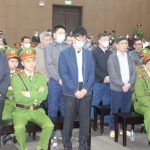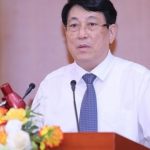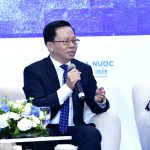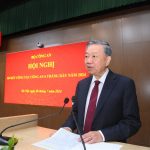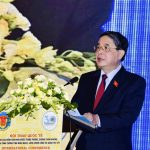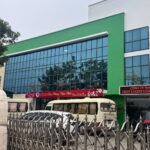On August 27, in Hanoi, the Party Committee of Central Agencies organized a hybrid conference, combining an in-person and online format, to provide specialized information on anti-corruption, negative behavior prevention, and integrity education. The event also aimed to propagate and implement the Law on Grassroots Democracy within the Party Committee.
Corruption is being gradually curbed, prevented, and pushed back
At the conference, Dr. Nguyen Xuan Truong, Director of Local Affairs I, Central Internal Affairs Commission, presented a talk on “Some outstanding achievements in the fight against corruption and negative behavior in the past time, key tasks for the coming time; and integrity education to prevent corruption and negative behavior.”
According to Mr. Truong, the fight against corruption and negative behavior has been vigorously and resolutely led and directed, with breakthroughs, comprehensiveness, and remarkable results. Corruption is being gradually curbed, prevented, and pushed back, and there is a tendency to decrease, making an important contribution to maintaining political stability, socio-economic development, and consolidating the trust of officials, party members, and the people.
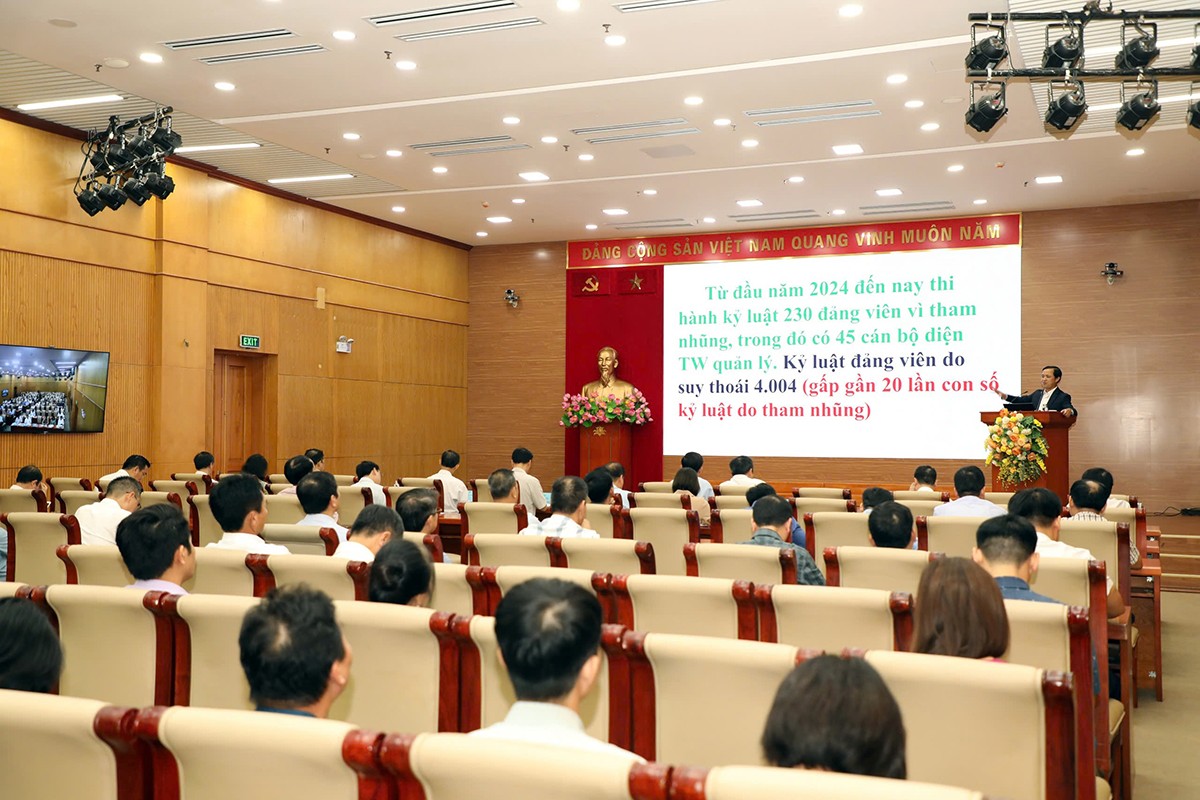
Overview of the conference at the Party Committee of Central Agencies. (Photo: PV)
Mr. Truong mentioned some specific results of the fight against corruption and negative behavior in the past time, as reported at the 26th meeting of the Central Steering Committee for Anti-Corruption recently.
Specifically, since the beginning of the 13th term, 141 officials under the Central management have been disciplined (including 55 criminally handled); among them, there were 31 members and former members of the Central Committee (16 of whom were criminally handled).
From the beginning of 2024 up to now, 230 party members have been disciplined for corruption, including 45 officials under the Central management. Notably, 4,004 party members were disciplined for degeneration, nearly 20 times the number of party members disciplined for corruption. From the beginning of 2024 up to now, the competent authorities have initiated proceedings and investigated 475 cases/1,094 subjects for corruption crimes, including 16 officials under the Central management.
Regarding some prominent cases, Mr. Truong said that in the case related to Phuc Son Group, 23 defendants have been prosecuted, including one provincial party secretary, one former provincial party secretary, one standing vice provincial party secretary, two provincial people’s committee chairmen, and one former provincial people’s committee chairman. In the case that occurred at Thuan An Group, so far, eight defendants have been prosecuted, including two officials under the Central management, including one provincial party secretary and one deputy chief of the National Assembly Office.
Dr. Nguyen Xuan Truong emphasized that there are some practical issues that need to be addressed in the current fight against corruption and negative behavior. Specifically, globalization and integration have impacts and pose risks, especially in terms of foreign-related corruption, money laundering, and asset transfer and escape abroad.
Secondly, the strong development of the market economy has led to the emergence of shortcomings and negative aspects. It is necessary to identify negative manifestations in the relationship between political power and economic power, between enterprises and persons with positions and powers, in order to propose appropriate and timely solutions.
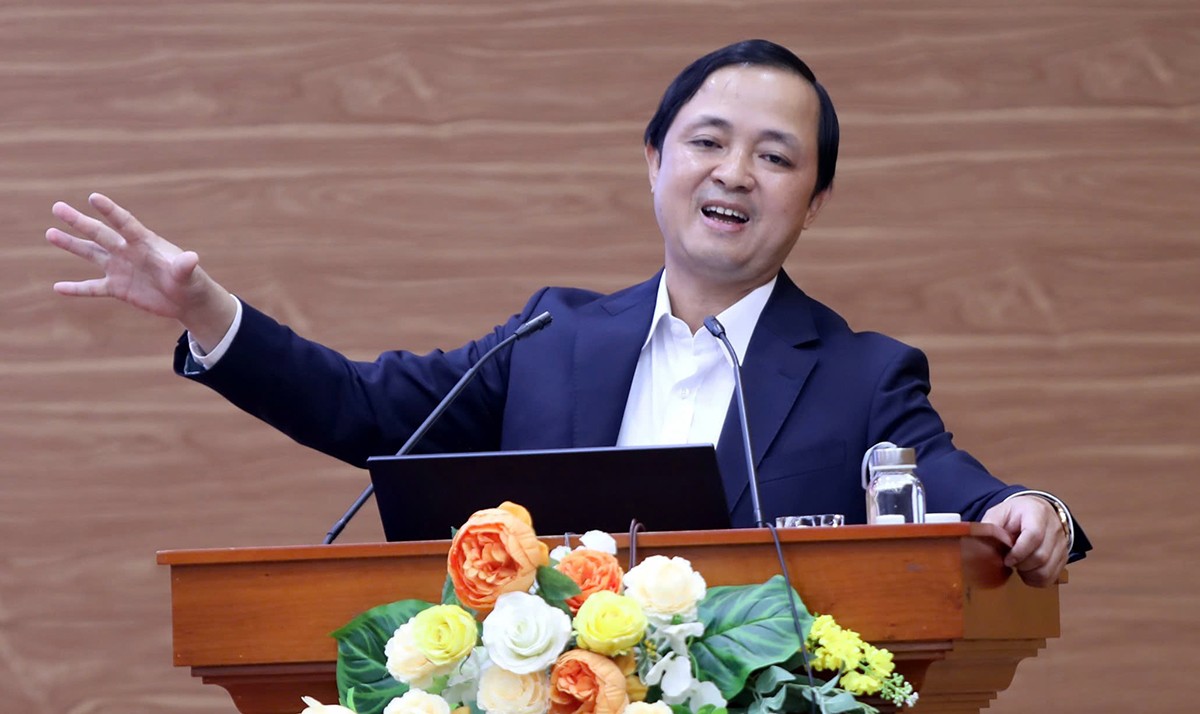
Dr. Nguyen Xuan Truong, Director of Local Affairs I, Central Internal Affairs Commission. (Photo: PV)
Another issue, according to Mr. Truong, is whether the strict handling of corruption and negative behavior will hinder innovation and creativity, or lead to a reluctance to act, giving rise to the mindset of “doing more, making more mistakes; doing less, making fewer mistakes; not doing, not making mistakes”, or a tendency to avoid and shirk responsibilities. Notably, corruption and negative behavior in some areas such as land, bidding, securities, bonds, banking, and vehicle inspection have caused particularly serious consequences, as well as collusion and collusion between degenerate and degraded officials with enterprises and organizations for personal gain…
In addition, there are also issues regarding the proposal for a model of a specialized agency or unit for anti-corruption and negative behavior prevention; the issue of the actual income of officials, public employees, and civil servants still being lower than the necessary living standard; handling of assets and incomes that have increased but cannot be explained in terms of origin; the issue of controlling assets in society as a whole; the recovery of assets transferred abroad. There are also issues regarding control of power; and the development and formation of a theoretical system for anti-corruption and negative behavior prevention that is synchronous and characteristic of Vietnam…
Building a Culture of Integrity
Mentioning some viewpoints, requirements, tasks, and key solutions in the work of anti-corruption and negative behavior prevention in the coming time, Dr. Nguyen Xuan Truong emphasized that recently, the General Secretary and President To Lam had an important speech at the meeting of the Central Steering Committee for Anti-Corruption: “Resolutely and persistently push back corruption and negative behavior, with a scientific, suitable, dialectical, comprehensive, and effective method; and always put the interests of the nation, the country, and the Party first.”
The General Secretary and President also emphasized three requirements in anti-corruption and negative behavior prevention: First, anti-corruption and negative behavior prevention must serve the socio-economic development, and must not affect or hinder socio-economic development because of the push for stronger anti-corruption and negative behavior prevention. Second, anti-corruption and negative behavior prevention must be implemented to the grassroots level, to each party cell, and must be supervised by officials, party members, and the people. Third, pay special attention to the prevention of negative behavior, especially negative behavior that is the root cause and reason leading to corruption.
Mentioning specific measures, Dr. Truong said that one of the necessary measures is to persistently build a culture of integrity and promote integrity education.
Currently, according to Mr. Truong, the Central Internal Affairs Commission is studying and drafting a project to submit to the Politburo for the issuance of a Directive on strengthening the Party’s leadership in integrity education. The draft project recommends seven methods and approaches to integrity education.
Specifically, it is necessary to build, propagate, and implement regulations on ethics and culture of public service, creating a institutional framework to help officials and party members orient their behavior and morality in work and life, avoiding violations. Propagate integrity through the press and media, social networks, and creative and performing arts activities. Educate integrity by setting examples of integrity of party members, especially key leading officials. Educate integrity through the serious and effective implementation of the campaign “Studying and following Ho Chi Minh’s ideology, morality and style”…

Mr. Nguyen Van The, Party Secretary of the Party Committee of Central Agencies, speaks at the conference. Photo: PV.
At the conference, Mr. Nguyen Van The, Party Secretary of the Party Committee of Central Agencies, emphasized that the Party committees within the Party Committee of Central Agencies need to continue to promote education and propaganda on the goals, viewpoints, tasks, solutions, and regulations of the Party and State on anti-corruption, negative behavior prevention; the dangers of corruption and negative behavior; and promote self-awareness and unity in perception and action among officials and party members in anti-corruption and negative behavior prevention.
Along with that, according to Mr. The, it is necessary to uphold the spirit of setting an example by the leaders of the Party committees, agencies, organizations, and units; persistently and regularly educate and cultivate the virtues of integrity and thrift, and build a culture of thrift and anti-waste among officials, party members, public employees, civil servants, and laborers.
Regarding the Law on Grassroots Democracy, Mr. The emphasized that the law stipulates the content, methods, and implementation of grassroots democracy, the rights and obligations of officials, public employees, and civil servants in practicing grassroots democracy, and the responsibilities of heads of agencies and units in ensuring grassroots democracy. The law has concretized the motto “The people know, the people discuss, the people do, the people inspect, the people supervise, and the people enjoy the benefits.”
“The practice of grassroots democracy is one of the important solutions to prevent and combat corruption and negative behavior, helping this work become more practical, drastic, and effective,” Mr. The emphasized.
On the basis of the contents propagated at the conference, the Party Secretary of the Party Committee requested that the Party committees and Party organizations throughout the Party Committee propagate and inform the contents to the officials and party members to help them grasp and understand correctly and fully the Law on Grassroots Democracy; effectively carry out information and propaganda on anti-corruption, waste, and negative behavior prevention; integrity education; and lead and direct the implementation of regulations on corruption prevention; seriously implement the public declaration of assets and incomes of officials, party members, public employees, and civil servants; and publicly and transparently announce the annual financial and asset situation of the agency according to regulations…
Mr. Luong Cuong: Strict Action Against Wrongdoings Involving AIC, Van Thinh Phat, Phuc Son, and Thuan An
Senior Party official Luong Cuong has requested that the Central Internal Affairs Commission focus on providing counsel and guidance on inspections, examinations, investigations, and strict handling of violations related to cases involving AIC, FLC, Van Thinh Phat, the Saigon Dai Ninh project, Phuc Son Corporation, and Thuan An, among others.
Unraveling the Challenges in Audit Operations: A Strategic Approach
“To meet the demands of preventing and combating corruption and waste, it is imperative to empower the State Audit Office with additional regulations and tools. This includes augmenting their authority with financial accountability audits, investigative audits, and the power to prevent the dissipation of assets in cases where they uncover indications of corruption, negative behavior, or waste.”
Enhancing International Audit Coordination for Heightened Transparency and Public Integrity
On July 9, the Vietnam State Audit Office (VNSA) hosted an international workshop on “The Role of Supreme Audit Institutions in Preventing Corruption, Enhancing Transparency, Integrity, and Good Governance.”

